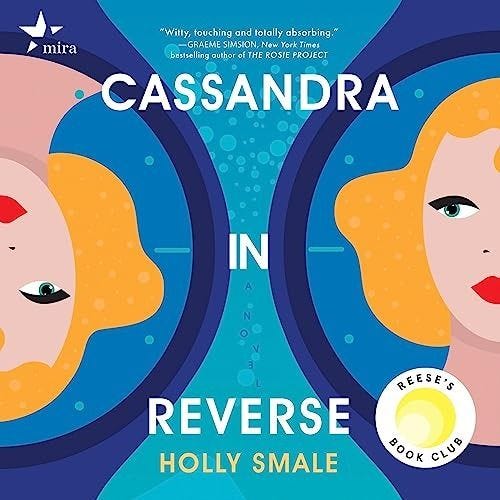you’re loveable not in spite of your neurodivergence, but because of it
and so am i.
“I realized [how it] feels to be me. As if I have to hide who I am, all of the time. As if I have to pretend to be like everyone else, just so people will love me. As if I’m constantly being asked to share, to reveal myself, to open up, and when I do – when I finally show people who I truly am – it’s not what anyone wanted and they explode right in front of me. I am so fucking done with making myself smaller.” ― Holly Smale, Cassandra in Reverse
Cassandra in Reverse by Holly Smale is one of the best books I have read, one I just finished yesterday. To sum it up without spoilers that aren’t on the first page, Cassandra is both dumped and fired on the same day. Later that day, she finds out that she can time travel. And she decides to use it to constantly re-do moments so that she can say the “right” (read: more palatable or likeable) thing (thank the Goddess I don’t have this power because I would use it until I exhausted myself, even more than I already am).
And one more thing: Cassandra is autistic.
It is so deeply to read about a female main character with autism, and not just a vaguely coded autistic character. Smale touches on the pressure she placed on herself to represent an autistic well in the reader’s note of the book. Smale is an autistic woman, something that shines through the pages as she describes feelings, situations, and thoughts that I have never seen so accurately depicted outside of my own head.
“’[Saying on the spectrum] is a euphemism. They don’t want to say autistic because they think it’s rude. It is not rude… People think autism is some kind of error, and it’s not. You’re not broken or ‘disordered,’ or whatever they say on their little bits of paper.’” ― Holly Smale, Cassandra in Reverse
I’m not sure if I’m autistic or not. I do have an ADHD diagnosis, as well as CPTSD. I know for a fact that I also have SPD (sensory processing disorder), something I feel 100% confident diagnosing myself with. I know this to be true because the processing of my senses is disordered. Touches by someone who I don’t feel comfortable with yet feel suffocating, even when they are small shoulder bumps. Sounds, especially unexpected sounds, can make me go from regulated and calm to complete and total dysregulation in seconds. I have to walk around the periphery of the grocery store instead of straight down the middle because the fluorescent lights glare extra in the middle. These are just a handful of examples. I am almost constantly wearing either noise-canceling headphones or earplugs, even at home, and I try to wear only clothes that don’t scratch or cling or poke. Devon Price, in the book Unmasking Autism, explained it perfectly: “I had always been overwhelmed by loud sounds and bright lights. I got inexplicably angry in crowds; laughter and chatter could make me blow up with rage. When I got too stressed out or became overcome with sadness, I found it hard to speak.”
Like many adult women, these symptoms were missed in childhood, and even more so because I was excruciatingly shy and polite. I would make my way through the school day, and then cry for an hour when I got home. Price wrote, “People with so-called “female Autism” may be able to make eye contact, carry on a conversation, or hide their tics and sensory sensitivities. They might spend the first few decades of their lives with no idea they’re Autistic at all, believing instead that they’re just shy, or highly sensitive.”
Also like many adult women, I started researching autism online in my mid-twenties. Self-diagnosis is something to be careful of, especially when the only diagnostic tool is a TikTok video about how a few mundane symptoms are indicators of autism, like rubbing your feet against each other in bed or standing a little funny. These aren’t diagnostic criteria for autism, these are symptoms of being a person.
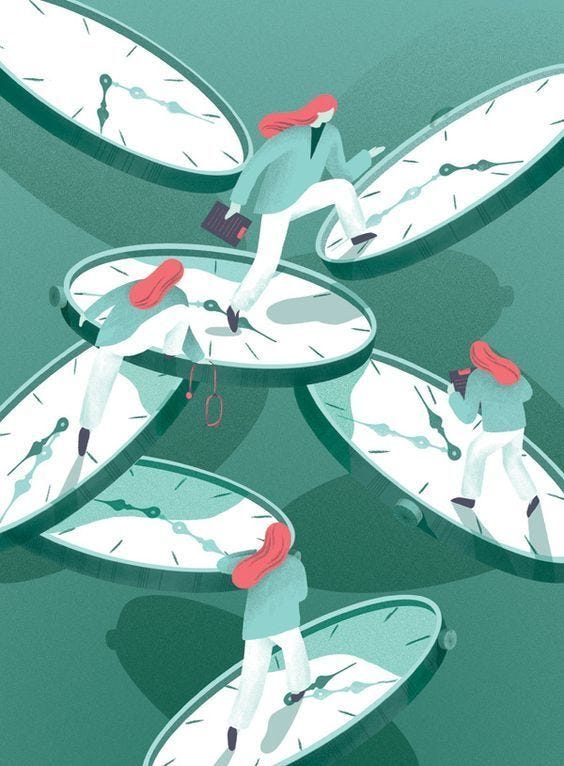
However, the autistic community is generally very accepting of self-diagnosis, mainly for two reasons: many adults weren’t diagnosed as children, especially girls, shy kids, quiet kids, or high masking kids/kids with less obvious care needs; and getting a proper diagnosis is not only hard to find, but expensive once you find someone that does adult assessments. As Price wrote, “Diagnosis is a gatekeeping process, and it slams its heavy bars in the face of anyone who is too poor, too busy, too Black, too feminine, too queer, and too gender nonconforming, among others.”
And many self-diagnosed autistic adults have done more research than just watching a few TikTok videos and calling it good. I’ve taken numerous, detailed, and lengthy, assessments, read several books, researched journal articles, and consumed a lot of long-form content about it. A 2015 study by Bram Sizoo et al. found that self-diagnostic tools “correctly identified autism spectrum disorder patients in almost 80% of the referred cases.”
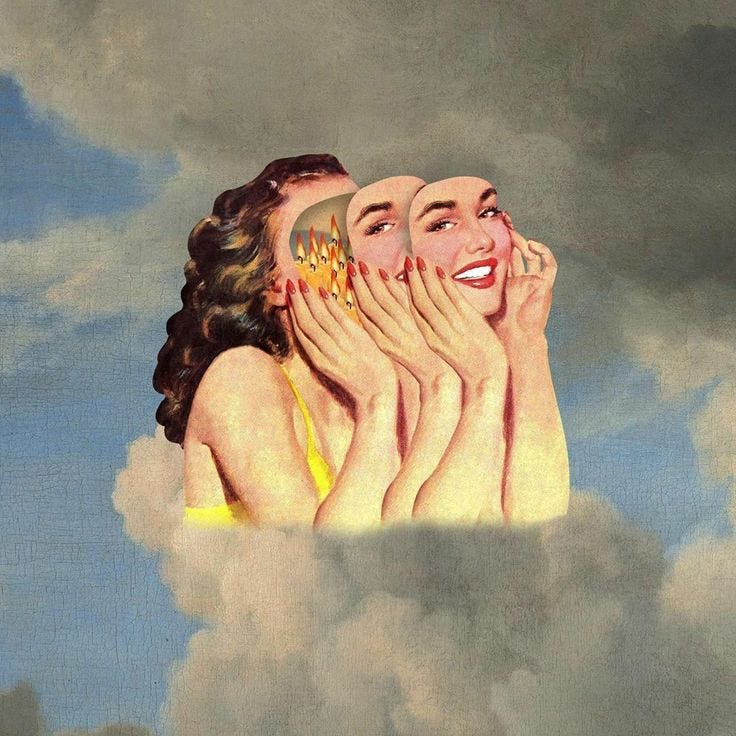
“Most of us are haunted by the sense there’s something “wrong” or “missing” in our lives—that we’re sacrificing far more of ourselves than other people in order to get by and receiving far less in return.” ― Devon Price, Unmasking Autism: Discovering the New Faces of Neurodiversity
Also, and I don’t know how shared this sentiment is among others, I don’t necessarily feel a need to know if my symptoms are dysregulation caused by CPTSD, ADHD, SPD, or autism. (And, there can be risks to having a diagnosis in your medical record, but that’s a topic for another day.) For many, knowing helps. A lot. It helps give language to an experience that can be hard to explain. It opens the door to a community that can finally understand you, after feeling like an outsider your whole life.
“I find being around people so hard. Any people. There’s all this noise and light and color and sensation, all the time, and I don’t know how to read tone or emotions or jokes or flirting. It’s like all the things that everyone else can do automatically, I have to do manually. And I get overwhelmed. Constantly.” ― Holly Smale, Cassandra in Reverse
For me, I’m content having a general idea of my neurodivergence and knowing that I now have words to describe my inner world. Until I learned the word, “overstimulated,” I had no idea what those meltdowns and shutdowns were. And because I didn’t know what they were (I called them anxiety, even though it wasn’t quite right), I didn’t know how to prevent them. I was treating my experiences with deep breathing and CBT worksheets and wondered why it didn’t help. I didn’t know that noise, smells, lights, and crowds were all aggravating these feelings. I didn’t know what “masking” was, or that I had a mask on my entire life, and that’s why I felt so exhausted at the end of the day, every day.
“Most of the time it feels like I’m wearing a mask, too. As if the real Cassandra is hiding underneath, staring through two big eyeholes, wondering which mask she’s supposed to use at any given moment and if she’s managed to pick up the right one. Trapped and unable to breathe. Pretending to be someone else, all the time. Watching from a distance. Terrified of what will happen when the mask falls off and reveals the actor underneath.” ― Holly Smale, Cassandra in Reverse
It always felt like there was a rule book that everyone else knew. It felt like, no matter how much I stayed silent and diligently watched everyone else, I never quite said the wrong thing. I never quite stopped being hyperaware of my body in the space around me.
“I’m being a normal human, right? This is how people sit, isn’t it? Am I jittering, rocking, bouncing, clawing? Has Will noticed that I’m just copying his body language and facial expressions, or is he thinking how pretty I look in the sun? Does he like me, or is he faintly creeped out by me?” ― Holly Smale, Cassandra in Reverse
It can be so lonely. So incredibly lonely. It feels like you’re always on the outside looking in. And, like Cassandra in the above quote from the book, it’s not only exhausting to be constantly aware of how you’re sitting, breathing, looking, and talking, it’s isolating. Going home after hanging out with someone means going home and replaying the situation again and again and again, trying to figure out if I behaved “okay,” and if the other person gave an indication that I did the “wrong” thing.
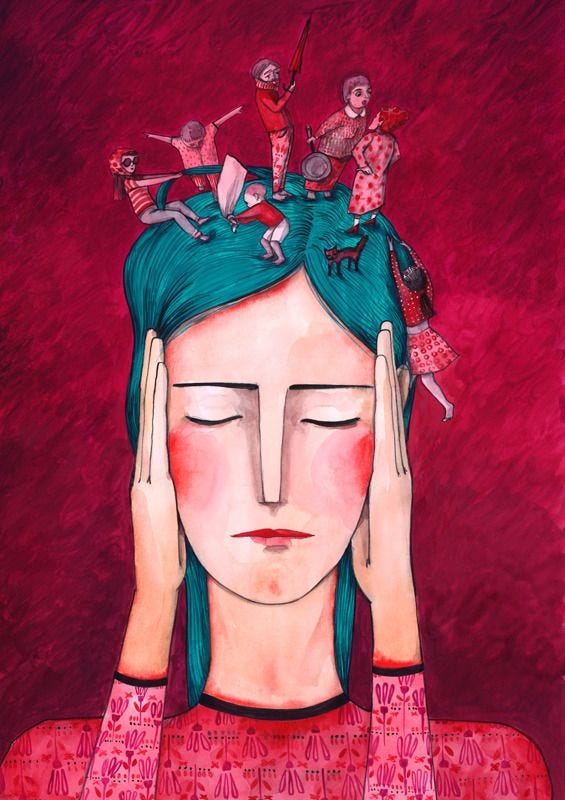
“How do people do this? How do total strangers weave conversation back and forth like this without tying themselves up in knots? How do they know what to say next? More importantly, why? It’s like watching a musical where they all break into the same dance without rehearsing it first: totally inexplicable.”― Holly Smale, Cassandra in Reverse
Knowing how to communicate my needs to myself first, then my partner, drastically changed my quality of life. Growing a community full of other neurodivergents improved it even more. It no longer felt like I was interacting with other people with a blindfold on but being expected to still see. It felt like coming home. Other neurodivergent people communicate in a way I naturally understand, and they naturally understand me. My sense of humor is finally celebrated instead of getting puzzled looks. If I say, “I can’t watch horror movies,” or, “I need to go home because I’m starting to get overstimulated,” or communicate my energy level in “spoons,” they don’t push me or question me.
“Sal somehow understood what I needed without making me feel weird about it first, and now I think I might be about to cry.” ― Holly Smale, Cassandra in Reverse
It feels so sweet, so safe, so nurturing to be understood. Not to be just tolerated or endured or forgiven, but deeply understood. To be fully understood is to be loved.
This is why, if you relate to any of what I wrote about, you should absolutely give Cassandra in Reverse by Holly Smale a read. It felt like I was reading a book about myself.
“As I lie there, touching nothing and nobody – a jigsaw piece with the edges sanded down – I suddenly realize: I’m not traveling through time to undo the things I’ve done wrong or the decisions I’ve made. I’m trying to undo myself.” ― Holly Smale, Cassandra in Reverse
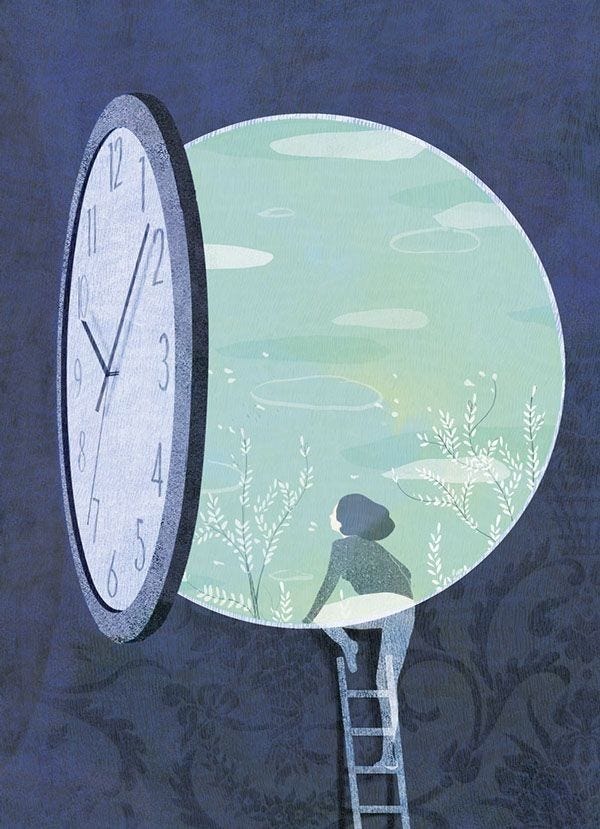
Visit my YouTube Channel!
letters to five star reads in 2024
I read 55 books this year. These are the ones I rated five stars.





